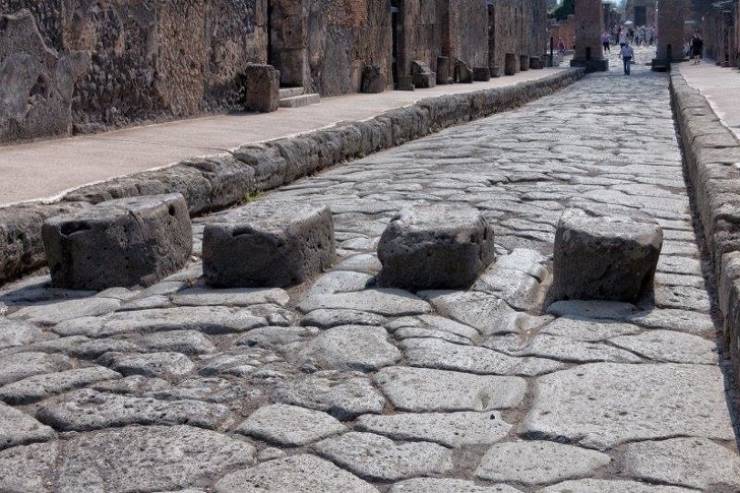
Roads in Pompeii were filled with these stone blocks. Archaeologists couldn’t figure out how the carts managed to get past them. It turned out that these pedestrian crossings were designed in such a way that the wheels of the local vehicles could drive through free space between these blocks. At the same time, they could be used as protection against enemies who had carts with different wheels. These stone blocks also helped city dwellers prevent their clothes from getting dirty and would allow them to walk on the dry road. There was no sewage system in Pompeii, so all the waste would flow down the streets and would accumulate at the lower level of the road.
1.

Devoted 5 year s ago
Love these posts!
I've sung all my life; I especially love 16-century choir music and plainsong (Gregorian) chant. But I had never seen anything like the knives in #19. Note the older music script, which is no longer in use, but which some people find easier to read.
#3 I believe that in the US, a majority of people had dryers by the 60s, and that by the 70s, very few people did not have them.
I've sung all my life; I especially love 16-century choir music and plainsong (Gregorian) chant. But I had never seen anything like the knives in #19. Note the older music script, which is no longer in use, but which some people find easier to read.
#3 I believe that in the US, a majority of people had dryers by the 60s, and that by the 70s, very few people did not have them.







I've sung all my life; I especially love 16-century choir music and plainsong (Gregorian) chant. But I had never seen anything like the knives in #19. Note the older music script, which is no longer in use, but which some people find easier to read.
#3 I believe that in the US, a majority of people had dryers by the 60s, and that by the 70s, very few people did not have them.
#14, "woolen socks", perhaps and I have toes on my feet, not sure about Romans though.
#15 Now why would they be reading multiple books at once???